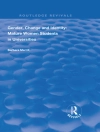How can researchers produce work with relevance to theoretical and formal traditions and requirements of public academic knowledge while still remaining faithful to the experiences and accounts of research participants based in private settings? Feminist Dilemmas in Qualitative Research explores this key dilemma and examines the interplay between theory, epistemology and the detailed practice of research. It does this across the whole research process: access, data collection and analysis and writing up research. It goes on to consider ways of achieving high standards of reflexivity and openness in the strategic choices made during research, examining these issues for specific projects in an open and accessible style.
Particular themes examined are: the research dilemmas that occur from feminist perspectives in relation to researching private and personal social worlds; the position of the researcher as situated between public knowledge and private experience; and the dilemmas raised for researchers seeking to contribute to academic discourse while remaing close to their knowledge forms.
قائمة المحتويات
PART ONE: INTRODUCING OUR VOICES
Public Knowledge, Private Lives, Personal Experience – Rosalind Edwards and Jane Ribbens
Hearing My Own Voice? An Autobiographical Discussion of Motherhood – Jane Ribbens
PART ONE: SPEAKING AND LISTENING: REFLECTING MULTILAYERED VOICES
Bringing Silent Voices into a Public Discourse – Melanie Mauthner
Shifting Layers of Professional, Lay and Personal Narratives – Tina Miller
Public and Private Meanings in Diaries – Linda Bell
Theoretical Voices and Women′s Own Voices – Janet Parr
PART TWO: HEARING AND REPRESENTATNG: REFLECTING THE PRIVATE IN PUBLIC
Hearing Competing Voices – Miri Song
Sibling Research
Reflections on a Voice-Centred Relational Method – Natasha Mauthner and Andrea Doucet
Representing Voices in Ethnography and Discourse Analysis – Pam Alldred
Re/constructing Research Narratives – Maxine Birch
Writing the Voices of the Less Powerful – Kay Standing
Research on Lone Mothers
Epilogue – Jane Ribbens and Rosalind Edward
عن المؤلف
Rosalind Edwards is a professor of sociology and a codirector of the ESRC National Centre for Research Methods at the University of Southampton. She is an elected fellow of the Academy of Social Sciences and a founding and coeditor of the International Journal of Social Research Methodology. She has published widely on qualitative and mixed methods, including books on Paradata, Marginalia and Fieldnotes (2017, coedited with J. Goodwin, H. O’Connor, and A. Phoenix), What Is Qualitative Interviewing (2013, with J. Holland), and a Qualitative Research special issue on “Democratising Research Methods” (2017, coedited with T. Brannelly). Currently, she is part of a team exploring the feasibility of conducting secondary analysis across existing data from several qualitative longitudinal studies: http://bigqlr.ncrm.ac.uk/












